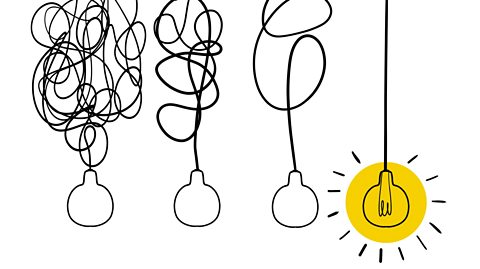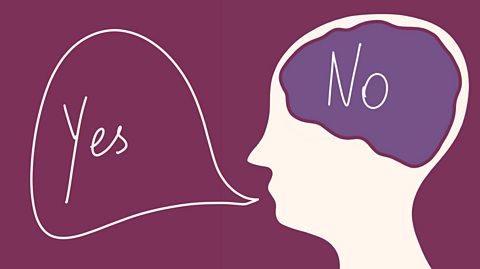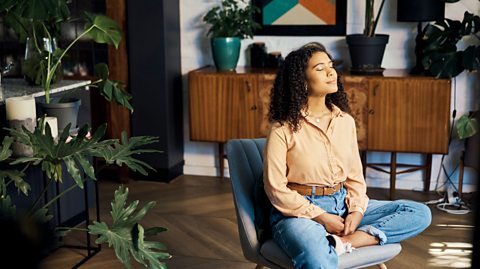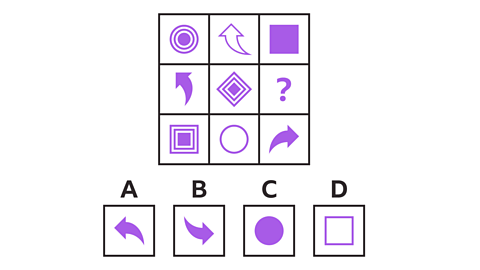Living in today's fast-paced world can often leave us feeling overwhelmed and stressed.
The idea of āsimple livingā has been explored from ancient times, and is encouraged in many religious practices. But among the floods of wellbeing influencers and mindfulness content, it can be difficult to know where to start. We asked psychologist Jacqui McKechnie to tell us more about how keeping it simple can declutter your mind and leave room for happiness, peace and fulfilment using these psychological tips.
Five simple tips to keep it simple

1. Declutter your space
Sounds good - or does it? When you think of simplicity, does having a clear out to make space for your stuff sound appealing? Or does it sound worrying; getting rid of things that you might need later - eek!
You might know the phrase "tidy space, tidy mind", and there is some truth to it. Decluttering doesn't mean being minimalisitic or depriving yourself of things you like, but organising your physical space can certainly help you feel calmer, more focused and in control. Start with these three steps:
- Donāt try to do too much too soon - begin small, like tidying up your desk, drawer or cupboard and ask for help if you need it!
- Consider what is essential to you and choose quality over quantity
- Ask yourself ā do I really need this? And you may have heard of this question: does it bring me joy? Answering these can help you to decide whether to bin or keep something.
If you like the idea of decluttering your space to make life easier, why not consider decluttering your mind too? This can extend to other areas of organisation, such as revising. For example, you might use timetables or do some bullet journaling. Don't focus on what everyone else is doing or what's trendy - find what works for you.
It can also be helpful to keep a gratitude journal by spending a few moments each day writing down what you are grateful for. Once you understand this, it becomes easier to make decisions and align your actions with what matters to you most.
2. You first
If you tend to not put yourself first, a lot of situations will suddenly seem very complicated - even those with friends. Boundary-setting is important in relationships: seek out meaningful and positive relationships with people who uplift and support you, and reconsider relationships that drain your energy. Remember, itās about quality not quantity!
Self-care is also essential for simplifying your life and promoting overall well-being. Engaging in activities that nourish your mind, body, and soul can help reduce anxiety. This can include exercise, spending time in nature, journaling, reading, or hobbies you enjoy. By taking care of yourself, you recharge your energy and create a solid foundation for simplifying other areas of your life.

3. Learn the power of 'no'
Many of us struggle with saying 'no' because we donāt want to disappoint others, or fear we'll miss out on opportunities. However, saying 'no' is essential to simplify your life and create space for what matters to you. Assess your commitments and obligations and be selective about where you spend your time and energy.
Remember that saying 'no' to one thing can mean saying 'yes' to something else. This can help you to feel in control of your decision-making, which can reduce anxiety.
This is an example of boundary-setting, which is important during times where we're always reachable. Technology has become an integral part of our lives, but it can also be a source of distraction, and at times be overwhelming. Set boundaries with technology by practising regular digital detoxes: allocate specific times during the day to disconnect from screens, turn off notifications, and engage in offline activities that bring you joy and relaxation.

4. Bite-sized is better
'Chunking' doesn't just apply to memory - it can help you with everyday tasks and life goals, too. Setting goals is important, but it's equally crucial for them to be realistic and manageable. Break down larger goals into smaller steps that you can tackle one at a time. By setting realistic goals, you avoid feeling overwhelmed and create a sense of progress and accomplishment.
You might find that it helps to make a colour-coded timetable so that it is easy to see what needs to be done and when, or a list where you can tick off what you do as you go along. Research on positive reinforcement suggests that rewards can help to increase helpful behaviours, so you can go ahead and give yourself a treat when you complete everything on your to-do list.

5. Mind how you go
Some people use mindfulness as part of their self-care. Mindfulness is the practice of being fully present in the moment, without judgment. It can help you simplify your life by bringing your attention to the present and reducing rumination about the past or worry about the future. Mindfulness exercises include meditation, deep breathing, or simply paying attention to your senses. By being fully present, you can savour the simple joys of life and cultivate a sense of inner calm.
However, it's important not to get frustrated if these things don't work for you! According to research with neurodiverse individuals, interoception (the ability to be aware and feel physical sensations in the body) is not a universal ability. Those with sensory processing issues in particular might find it more difficult to learn mindfulness because of this. Interoception can be improved by practising paying attention to the body, which in turn will help you understand your needs and limits in order to keep things simple.

Remember, simplifying your life is a gradual process that requires patience, self-reflection, and consistent effort. Embrace these psychological tips and experiment with what works best for you. Each small step you take towards simplifying your life can contribute to a greater sense of peace, fulfilment, and well-being. Give it a try - all you have to lose is clutter!
This article was published in July 2023
Staying calm in everyday situations. video
From starting somewhere new to having a debate, advice for dealing with tricky situations.

Physical and mental health: How are they linked?
Your mood is impacted by your physical health and vice versa - but how, and why?

Twelve quick quizzes to give your brain a workout
Send your brain to Bitesize-d boot camp with these bitty brainteasers.
